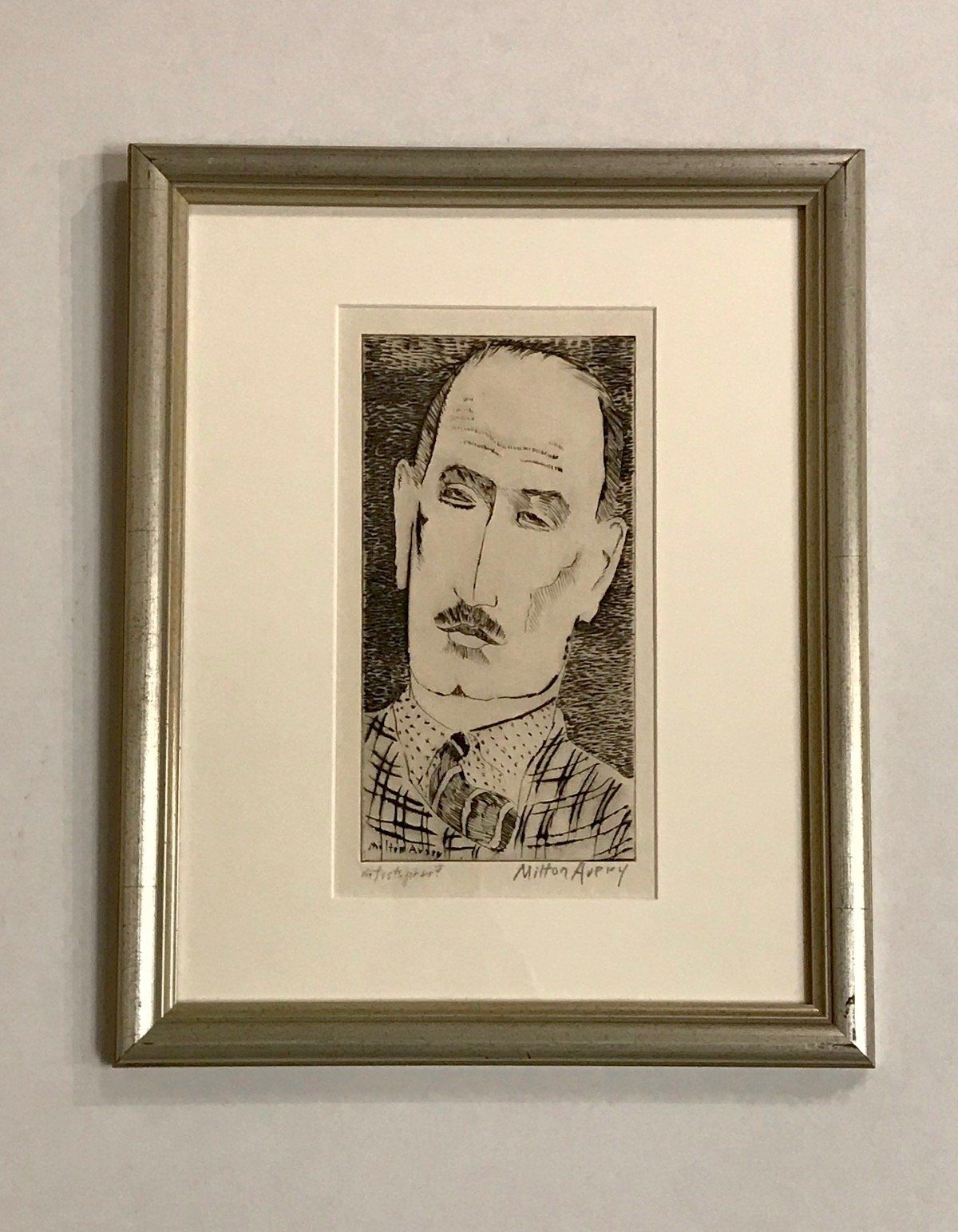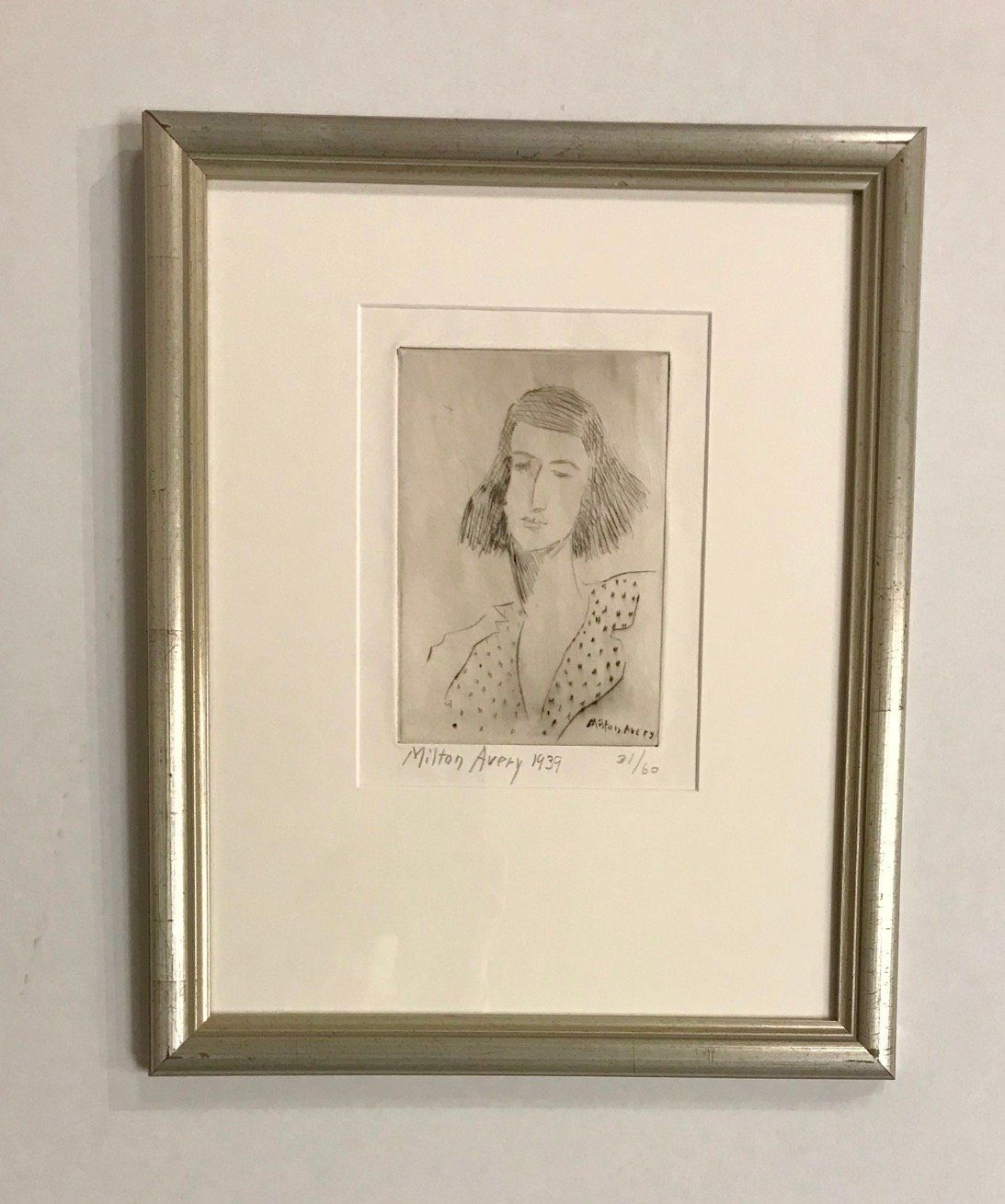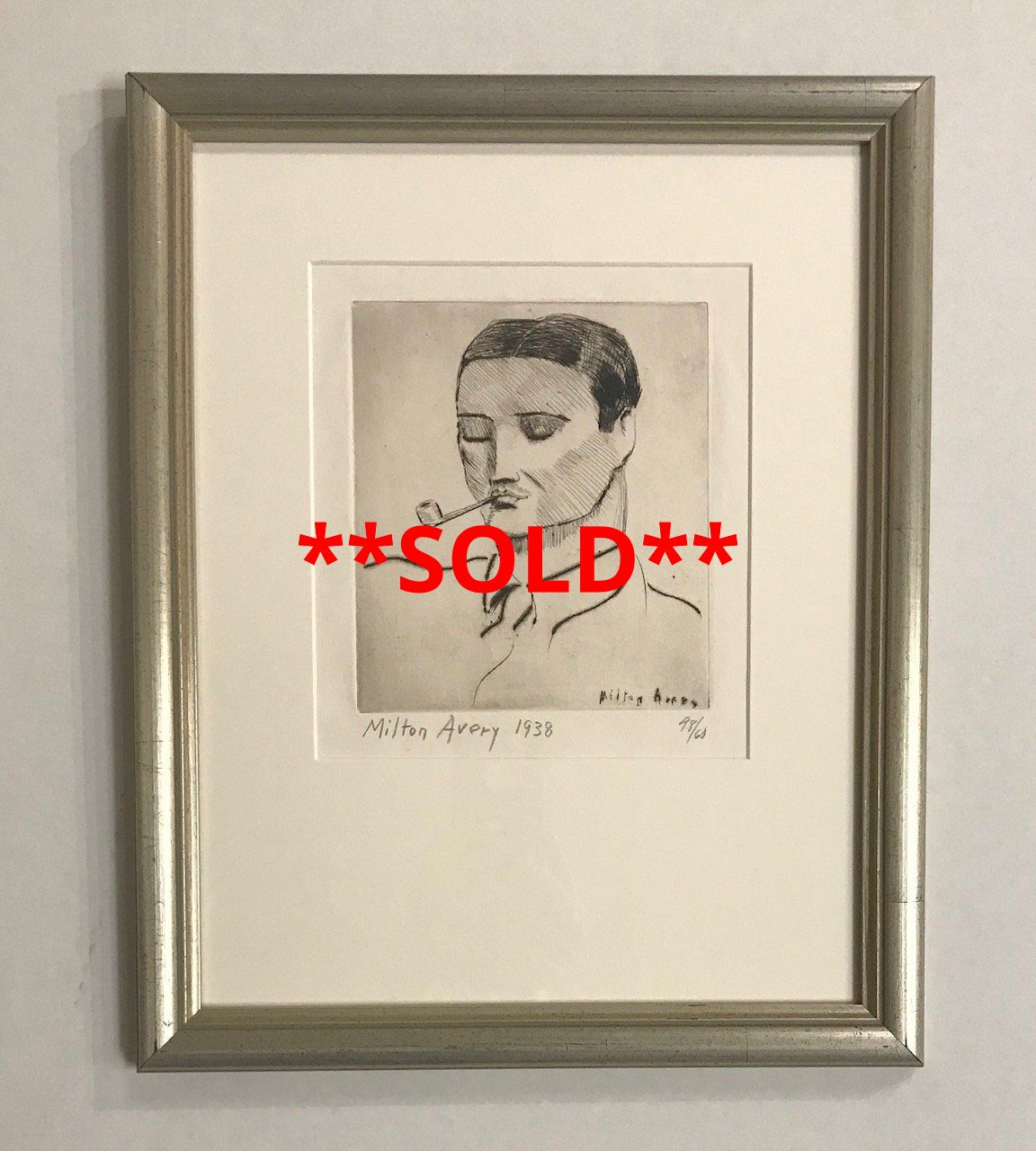Milton Avery
Milton Avery
Regarded as one of America's most important artists of the twentieth century, Milton Avery was renowned for his lyrical, Matisse-inspired colorism and his poetic approach to nature. A vital force in the development of Modernism in America, Avery's work exerted a major influence on the Abstract Expressionist and Color-Field painters of the 1950s and 1960s.
Born in Sand Bank (later Altmar), New York, in 1893, Avery moved with his family to Wilson Station, Connecticut, in 1898. Around 1905, he enrolled in a lettering class at the Connecticut League of Art Students in Hartford. However, after the course was cancelled, he transferred to a life-drawing class taught by Charles Noel Flagg. In the years ahead, Avery spent his spare time studying European Post-Impressionism, especially the work of the Fauves and the Expressionists.
By 1918, Avery was attending classes at the School of the Art Society of Hartford, where he produced award-winning work in the portrait and life-drawing classes. In 1924, he became a member of the Connecticut Academy of Fine Arts. One year later he moved to New York City, studying briefly at the Art Students' League. He made his debut in a group exhibition organized by the Society of Independent Artists in 1927 and had his first solo exhibition at the Opportunity Gallery in 1928. He also continued his formal studies, taking occasional classes at the League until 1938.
Avery's work of the 1930s suggests the influence of such German Expressionist painters as Ernst Ludwig Kirchner. However, during the 1940's, he developed a style characterized by simplified and delicately-modulated color planes, inspired in particular by the art of the Fauvist painter, Henri Matisse. Although Avery's work always involved a recognizable subject such as figures in an interior, still lifes or landscapes he successfully achieved a subtle balance between representation and abstraction, permeating his oeuvre with a mysterious, inner sensibility. Indeed, Avery's aesthetic, based upon an intuitive, spiritual response to nature, set him very much apart from the mainstream art of the thirties and forties, which was dominated by Realism imbued with socialist and/or regionalist overtones. Avery's work thus stands as a critical link between the early European colorists and the artist of the New York School, such as Morris Louis, Helen Frankenthaler and Mark Rothko (who once described Avery as a "great poet-inventor who had invented sonorities never seen nor heard before"). In addition to painting in oil, Avery was also a gifted watercolorist. He also produced numerous drypoint etchings and monotypes, as well as drawings.
Milton Avery died of a heart attack in New York in 1965. A preeminent figure in the tradition of American Modernism, he remains one of the few contemporary artists whose contributions have constantly been reevaluated with each development in American painting.
Examples of Avery's work can be found in the Museum of Modern Art, New York; the Metropolitan Museum of Art, New York; the Philadelphia Museum of Art; the Smithsonian American Art Museum, Washington, D.C.; and in other major public collections throughout the United States.
Born in Sand Bank (later Altmar), New York, in 1893, Avery moved with his family to Wilson Station, Connecticut, in 1898. Around 1905, he enrolled in a lettering class at the Connecticut League of Art Students in Hartford. However, after the course was cancelled, he transferred to a life-drawing class taught by Charles Noel Flagg. In the years ahead, Avery spent his spare time studying European Post-Impressionism, especially the work of the Fauves and the Expressionists.
By 1918, Avery was attending classes at the School of the Art Society of Hartford, where he produced award-winning work in the portrait and life-drawing classes. In 1924, he became a member of the Connecticut Academy of Fine Arts. One year later he moved to New York City, studying briefly at the Art Students' League. He made his debut in a group exhibition organized by the Society of Independent Artists in 1927 and had his first solo exhibition at the Opportunity Gallery in 1928. He also continued his formal studies, taking occasional classes at the League until 1938.
Avery's work of the 1930s suggests the influence of such German Expressionist painters as Ernst Ludwig Kirchner. However, during the 1940's, he developed a style characterized by simplified and delicately-modulated color planes, inspired in particular by the art of the Fauvist painter, Henri Matisse. Although Avery's work always involved a recognizable subject such as figures in an interior, still lifes or landscapes he successfully achieved a subtle balance between representation and abstraction, permeating his oeuvre with a mysterious, inner sensibility. Indeed, Avery's aesthetic, based upon an intuitive, spiritual response to nature, set him very much apart from the mainstream art of the thirties and forties, which was dominated by Realism imbued with socialist and/or regionalist overtones. Avery's work thus stands as a critical link between the early European colorists and the artist of the New York School, such as Morris Louis, Helen Frankenthaler and Mark Rothko (who once described Avery as a "great poet-inventor who had invented sonorities never seen nor heard before"). In addition to painting in oil, Avery was also a gifted watercolorist. He also produced numerous drypoint etchings and monotypes, as well as drawings.
Milton Avery died of a heart attack in New York in 1965. A preeminent figure in the tradition of American Modernism, he remains one of the few contemporary artists whose contributions have constantly been reevaluated with each development in American painting.
Examples of Avery's work can be found in the Museum of Modern Art, New York; the Metropolitan Museum of Art, New York; the Philadelphia Museum of Art; the Smithsonian American Art Museum, Washington, D.C.; and in other major public collections throughout the United States.
- "Head of a Man" Portrait of Louis Wiesenberg, the Artist.
- Artist's Proof Etching.
- Signed Lower Right by the Artist.
- 12-1/2" x 16".
- $5,200.00.
- "Rosalie".
- 31/60 Limited Edition Etching.
- Signed by the Artist Bottom Right.
- Circa 1939.
- 12-1/2" x 16".
- $4,700.00.
- "Man with Pipe", Portrait of Vincent Spagna, the Artist circa 1938.
- 48/60 Limited Edition Etching.
- Signed by the Artist Bottom Right.
- 12-1/2" x 16".
- $4,500.00.
© 2025
All Rights Reserved | Avery Gallery, Inc.






